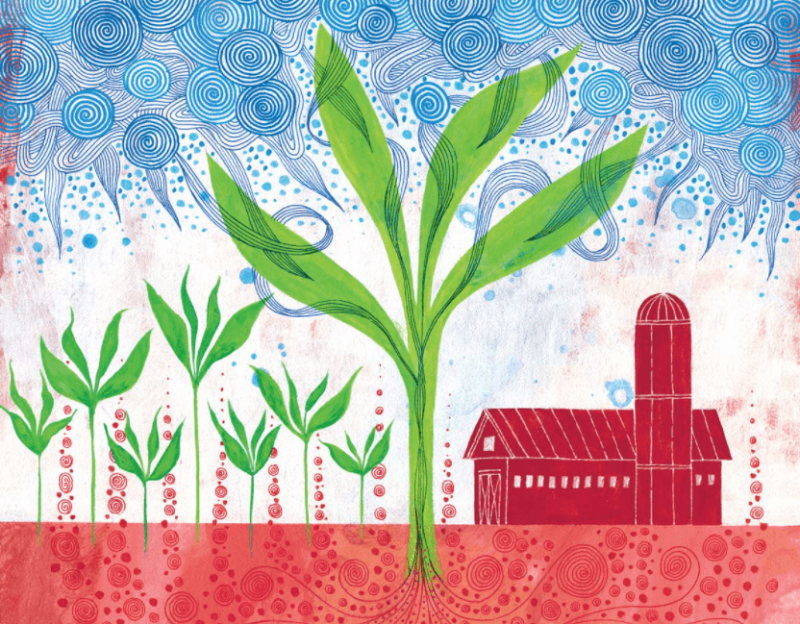Farmlands cover half of the Earth’s habitable land, and the global food system produces 21-37% of the world’s greenhouse gas emissions from human activity. When fields are worked with heavy machinery, their soils – which store three times as much CO2 as the atmosphere – leach trapped carbon back into the air.
Carbon farming, on the other hand, seeks to capture emissions, not create them. The challenge has been to make this form of regenerative farming financially viable, paying landowners to rejuvenate degraded soils by turning their fields into vast CO2 sponges.
Achieving this requires a range of regenerative techniques. Cover cropping is particularly popular – fields blanketed with grasses, cereals, legumes and other plant life that pull carbon from the air during photosynthesis, then store it in the soil below. After a couple of years and some meticulous measurements to show the changing carbon content of the soil, the sequestered carbon is certified and transferred into credits, before being sold.
For its proponents, carbon farming promises a bold new agricultural business model – one that tackles climate change, creates jobs and saves farms that might otherwise be unprofitable.































